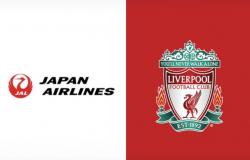The Australian dollar enjoyed a brief boost on Wednesday after local inflation was surprised higher, weakening bonds and raising the risks of bond rates interest continues to increase.
Data showed that the monthly consumer price index rose 0.7% in April, compared to March, while analysts had expected an increase of around 0.5%. Rising prices for health insurance, clothing, gasoline and vacations contributed to the increase.
The annual pace accelerated to a record 3.6% in five months, while core inflation accelerated to 4.1%, moving away from the target range of 2- 3% from the Reserve Bank of Australia (RBA).
The RBA had anticipated a rise in headline CPI this quarter, but thought core inflation would slow to 3.8% year-on-year.
“The main implication is that some components of inflation appear sticky, while goods do not contribute to disinflation,” said Tapas Strickland, head of market economics at NAB.
“If labor market or broader capacity pressures do not ease as much as we expect and inflation proves more persistent, we believe the RBA’s preferred response would be to keep inflation higher a long time.”
Markets responded by increasing the likelihood of a rate hike to 20%, although the RBA itself made it clear that the bar for a hike was high.
Futures have also pushed back the likely date of a first rate cut to July or August next year.
Three-year bond futures were down 12 ticks at 95.930, although much of the decline was due to a rise in U.S. Treasury yields overnight.
The Australian dollar strengthened a fraction to $0.6652, having hit $0.6680 overnight before running out of steam. Support lies around $0.6640 and $0.6592, with resistance at the May high of $0.6714.
The Kiwi dollar held steady at $0.6136, after hitting a 10-week high of $0.6170 in the previous session. Support lies at $0.6135 and $0.6084.
In New Zealand, an ANZ survey showed business confidence fell in May, while pricing intentions fell and inflation expectations fell to 3.6% from 3.8%. .
“The net proportion of businesses intending to raise prices over the next three months has reached a new low, which is also encouraging for the Reserve Bank,” said Sharon Zollner, chief economist at the Reserve Bank. ‘ANZ.
“We are optimistic that they will be able to reduce prices sooner than expected, as slowing domestic demand continues to weigh on inflationary pressures in the Consumer Price Index. (Reporting by Wayne Cole , edition of Shri Navaratnam)






